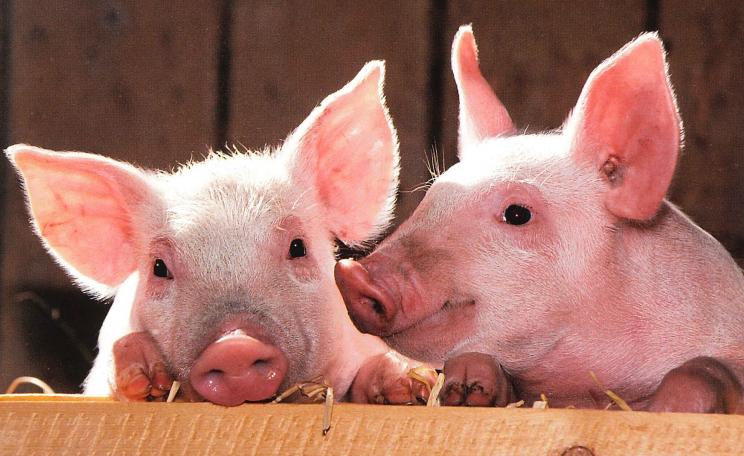Using animals in the manufacturing process of cars is widespread, unnecessary and unsustainable.
Eleven car manufacturing companies signed the COP26 declaration on accelerating the transition to 100 percent zero emission cars and vans in 2021.
By signing the declaration, these companies made a commitment to “work towards all sales of new cars and vans being zero emission globally by 2040, and by no later than 2035 in leading markets”.
Read the full report from the Vegan Society.
Car manufacturers have a responsibility to invest in sustainable technologies and make environmentally friendly changes to their manufacturing process.
Consumers
Transitioning to fully electric cars is perhaps one of the most effective ways for the industry to achieve the rapid changes demanded by the climate crisis.
But this should not be the end-point in the car manufacturers’ journey towards sustainability. We must also consider the impact on the environment from the use of animals in the car manufacturing process.
The Vegan Society has now published a report on the use of animals by car manufacturers.
Using the survey platform Attest, The Vegan Society sent out an anonymous survey to 750 people asking them for their views on car manufacturing.
The questions were designed to understand the ethical and environmental views of consumers and gain insight into consumer demand for vegan cars.
Trend
Animals are used throughout the car manufacturing process, from cow and bull leather seats to sheep fats used to vulcanise tyres and lubricate metals.
Using animals in the manufacturing process of cars is widespread, unnecessary and unsustainable.
The animal products used are often ‘by-products’ of the animal agricultural industry, a major contributor to the climate crisis. Often, it takes the skins of several cows to line the interior of a single car.
Sustainable alternatives utilising plants and recycled materials are being experimented with by large car brands, including Mercedes Benz and Ford, both of which are signatories of the COP26 declaration on zero-emission cars.
Sustainability is emerging as a major trend in the automotive industry, with consumers increasingly interested in more environmentally friendly cars.
Using animals in the manufacturing process of cars is widespread, unnecessary and unsustainable.
Animal
Over the last few years, these have become both a realistic option and appealing for consumers, with all major car brands investing in fully electric technology.
Our research suggests that most people - 84.6 percent - believe that the automotive industry has a duty to be more sustainable.
In addition, 79.7 percent of people agree that if plant leathers are better for the environment than cow and bull leathers, then new cars should use plant leathers as standard.
In the survey, respondents were asked whether they believed animal products should be entirely removed from cars.
A total of 75.2 percent said that they would like to see the removal of animal products from cars and other vehicles.
Marketed
Of this percentage, 43.6 percent said they thought it is unnecessary to use animals, 17.9 percent said so for environmental reasons and 13.7 percent for ethical reasons.
Just 10.7 percent of the panel did not believe that animals should be removed from the car manufacturing process.
Animals are used in the production of electricity, the extent to which was revealed by Ecotricity in a recent investigation.
This investigation gathered evidence of several species of animals including dogs, foxes, and farmed animals being sent to rendering facilities where they would be turned into fuel. This fuel is then sent to electricity-producing plants, in turn powering the national grid.
This raises ethical concerns over the use of dead animals to power our homes and vehicles. It also raises environmental concerns as this process is marketed as sustainable and environmentally friendly, despite the reliance on animal agriculture.
Reliance
The shift to electric cars looks good for the car brands and the government, but it only scratches the surface of what’s required to combat the climate crisis.
As highlighted in a recent article from The Ecologist, we live in a “car culture”, meaning cars are prioritised as a transportation means, to the detriment of the natural world.
Transitioning to more sustainable cars, including the removal of animals from the manufacturing process, is a necessary and not insignificant step.
However, it’s not going to solve the deeper environmental issues posed by the prioritization of cars over more sustainable and socially responsible methods.
The Vegan Society understands that the global reliance on cars and their contribution to the climate crisis is a complex area.
Manufacturing
Though we would like to see a vegan car in the future, the development of new materials and processes, and new methods of manufacturing, will always have an impact on the environment.
This new report is about understanding consumer demand and highlighting the issues resulting from the use of animals in car manufacturing.
Even if a vegan car does emerge onto the market, it’s a whole other moral and personal dilemma if one should use the car at all, regardless of its environmental and ethical credentials.
Fully electric vehicles are not going to solve all the problems associated with transport emissions.
But it is still important for the car manufacturing industry to take on board the environmental and ethical issues highlighted in this report.
Transitioning to fully electric cars is the right thing for the industry to do, as is removing all animal products from the manufacturing process and our energy supply.
This Author
Alexander Huntley is a research assistant at The Vegan Society. He recently graduated from SOAS with a degree in the politics of conflict, rights and justice MSc. He is a passionate human and animal rights advocate.







